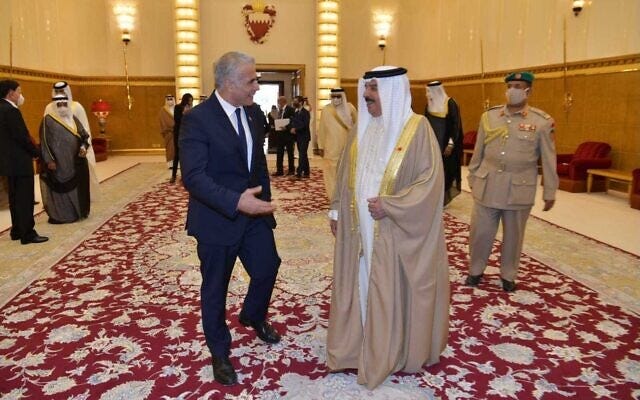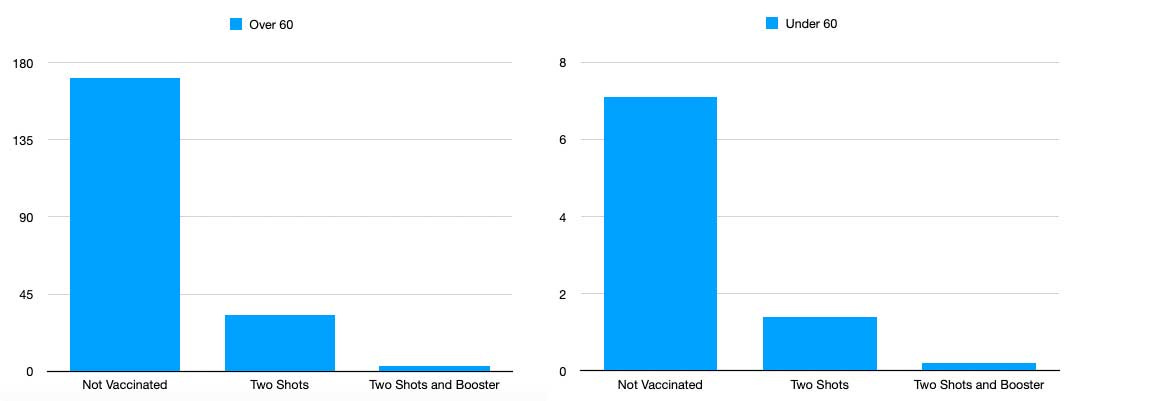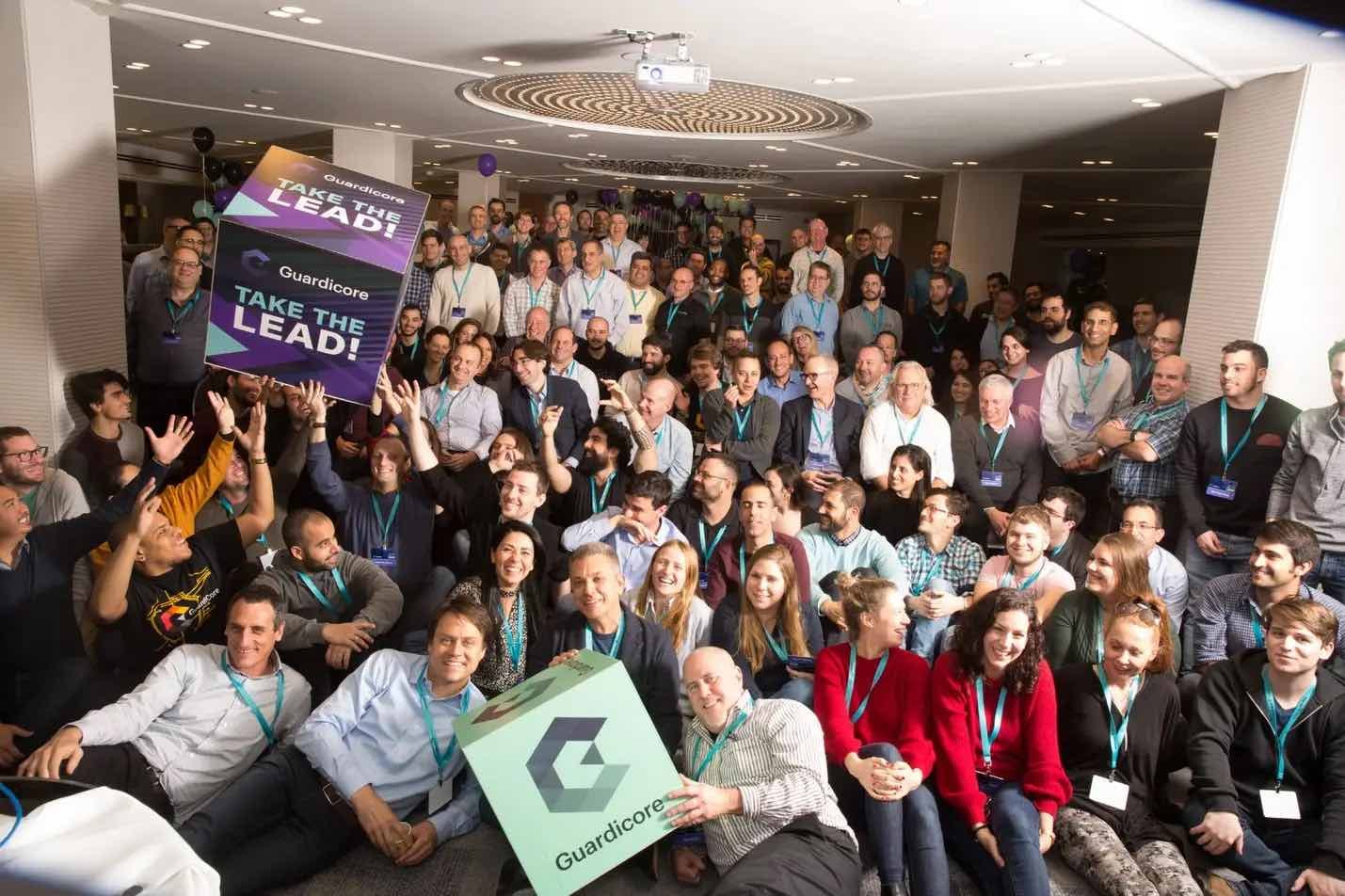Israel Update Week Ending October 1
Bennett at UN, Lapid in Bahrain, 2 Billion Invested in Israeli Startup in September, Covid
FOREIGN AFFAIRS/DIPLOMATIC RELATIONS
On Monday, Prime Minister Naftali Bennett made his debut on the world stage, at the UN. In Israel, the biggest question was Bennett’s speech and delivery compared to those presented by Netanyahu. The answer — Bennett was definitively ok. Although Bennett does not possess Netanyahu’s rhetoric flair, his English is excellent, and he undoubtedly comes across as a serious leader.
In the first part of his speech, Bennett shared his vision of Israel, i.e., a positive place with much to offer; a high-tech center, not a place defined by its conflicts. Bennett’s message on Iran was a little different from that of Netanyahu. There were no gimmicks, no charts or pictures. Bennett just laid out Israel’s position. Something else was distinguished in Bennett’s address from all of Netanyahu’s UN spiels — there was no reference to the Holocaust, which was a good thing.
While it will never be time to stop teaching about the Holocaust, the time has come for Israeli politicians to stop invoking that horrific tragedy in relation to every threat Israel faces. Bennett, I thought, was a little too boastful about the state of Covid in Israel. The portion of his speech in which he spoke of the government making the decisions, and sometimes not following all of the advice of the medical professionals, made the most news in Israel. The media played up the Prime Minister’s comments as an attack on the professionals in the Health Ministry. The media barrage became so much of an issue that Bennett met with Israel’s top health professionals to apologize for this aspect of his speech on Thursday. Listening to his entire UN speech, I give Bennett a grade of “B+”.
After speaking at the UN, Bennett spoke to a gathering of Jewish community leaders. While it was clear that Bennett prepared carefully for his UN speech, his speech to the Jewish communal leaders seemed to be less rehearsed, or polished, perhaps on purpose. Nevertheless, Bennett came across as friendly and more accessible than many of the Israeli leaders who have delivered similar speeches in the past.
Bennett was well-received by the American Jewish leadership. He made one important statement in the address. To paraphrase, Bennett stated that Israel is doing just fine economically, and no longer needs American Jewish money. Bennett asserted that it is time to redefine Israel’s relationship with American Jewry, so it's no longer based on financial support from American Jews, but rather, on projects that can be accomplished together.
Bennett was not the only one active on the diplomatic front, this week. Foreign Minister Yair Lapid made a historic visit to Bahrain to open Israel's Embassy there. Lapid was Israel’s first Foreign Minister to make an official state visit to the Kingdom. Lapid met with Baharaini King Hamad bin Isa Al Khalifa. This was the first public meeting between the King and an Israeli official. Bennett met with his Bahraini counterpart, as well as, with the Prime Minister.
With the Foreign Minister and the US Charge Affairs, Lapid visited US Naval ships docked in Manama. In his press conference, Lapid stated,
The conflict is not between Left and Right, or between Jews and Muslims or Christians, but rather, the Global fight is between extremists and moderates, between a culture of life vs. a culture of violence and death. Together with all of our friends in the Gulf, we are leading a coalition of brave moderates that look forward to creating a future of stability and acceptance.
Thursday, Gulf Air began twice-weekly flights between Manama and Tel Aviv.
DEFENSE
The Army and the Shin Bet security service uncovered a Hamas terror cell on the West Bank. The army and other security services entered a village near Jenin on Sunday night, to arrest the terrorists. Four of the terrorists were killed, and two Israeli soldiers, from the elite Duvdevan unit, were seriously wounded. It seems likely they were hit by friendly fire. The soldiers, whose injuries were life-threatening, received excellent medical assistance in the field that saved their lives. By Thursday night, both soldiers had regained consciousness and were out of danger. At the time, there was fear that Hamas or the Islamic Jihad would retaliate with rocket fire. But that did not materialize.
On Thursday, Israeli soldiers killed a Gazan who was approaching the border fence. In addition, a Palestinian in Jerusalem attacked a policeman with a knife and was killed. A Palestinian in the village of Burkin, near Jenin, was also killed, overnight Wednesday. The fear is that the recent number of deaths will provoke additional terror attacks.
On Simchat Torah (Tuesday in Israel), a group of settlers attacked residents of the Palestinian Village of Khirbat al-Mufkara, in the Hebron Hills. The vandals went house-to-house, smashing windows, and destroying property. A three-year-old was hospitalized, after being hit with a stone thrown by settlers. Foreign Minister Lapid condemned the attack, and seven settlers were arrested. The attack, which many have compared to pogrom, has slightly reinvigorated the anti-occupation movement. On Thursday night, the crowd set up weekly, opposite the Defense Ministry in Tel Aviv, had three times as many people as in previous weeks.
COVID–19
It's not clear where Israel stands at the moment in its fight against Covid-19. The statistics are very encouraging. The number of seriously ill patients has fallen from the low 700s to the low 600s, in one week. Yesterday, there were 4313 positive cases with a 3.74 positive rate, almost half the rate of a few weeks ago. Sadly, the death rate still remains high, with 20-30 people dying every day, (though admittedly, death is a lagging indicator). During the month of September, 718 Israelis died of Covid; compared to 570 in August, and just 44 in July.
Next week, the true test will arrive, when Israel has the first full work week in a month, and testing results should become more regular, consistent, steady. Meanwhile, schools reopened on Thursday, following the extended holiday break. All parents were required to perform a home antigen test on their children, before sending them to school. The test kits were provided to all parents, free of charge. Despite the logistical challenges, the testing regime seems to have worked.
Something else is clear — the robust/vigilant Booster shot campaign is working. Those who received the booster (#3) shot are much less likely to become seriously ill. Moreover, the government has instituted a solid incentive for people to agree to get the booster. As of Monday, Israelis who recuperated from Covid-19, or received the vaccine more than six months ago, and have not yet gotten the booster, will no longer possess a valid green pass (which would allow them entry to malls, restaurants, and other venues).
The Israeli Health Ministry issued a report which stated that the Covid-19 vaccine booster dose (shot #3) has produced side effects in the lowest number of vaccine recipients. The research showed that out of the 3.3 million people who received the third dose, only 19 reported severe effects, and those might have been coincidental. This report does not reflect my own family’s experience. Both my wife and son had a more severe reaction to the third dose. I did not have any adverse reactions. Though most importantly, the side effects experienced by my wife and son only lasted one day, after which both they completely felt fine.
ECONOMY
Israeli companies raised an unbelievable $2 billion in September and closed exits totaling more than $1.2 billion. The two exits announced this past week were Guardicore and Beach Bum. Earlier this month Cybellum was purchased by LG.
Akamai, the US-based content distributor (CDN) and security firm, has purchased Tel Aviv-based Guardicore. The purchase price is $600 million. Current stockholders and employees will also receive the current cash balances of the company. Guardicore has developed a micro-segmentation solution designed to limit user access to only those authorized applications to communicate with each other. By denying communication as the default, the threat surface and risk exposure are drastically reduced, thereby limiting the spread of malware and protecting enterprise data flow across the network. This protection extends beyond the data center to the cloud, including bare metal, virtual machines, and containers. To date, Guardicore has raised $110 million, with the latest round in 2019, raising $60 million, at a value of $230 million.
Israeli gaming company, Beach Bum has agreed to be acquired by French Voodoo for $500 million. The company develops mobile games, based on popular real-life games, such as backgammon. The company was founded in 2015 and has raised very little money.
MetoMotion, a developer of advanced, intelligent robotic systems to help growers operate farms of the future, announced it has completed an investment round of $5 million led by Ridder, a leading greenhouse technology company, and Navus Ventures; the family investment office of Lely, investing in unique high-tech and sustainable start-ups and scale-ups that drive the transitions in food and energy. Sirius VC also participated in the round. The funds will be used for finalizing R&D activities, setting up production and marketing activities, and launching the commercial product.
HISTORY
Wearing my other hat I just uploaded to my site historycentral.com an entry on Europe in 1945. It describes the 55 million refugees many of them homeless in 1945. It puts many of today’s events into perspective.






